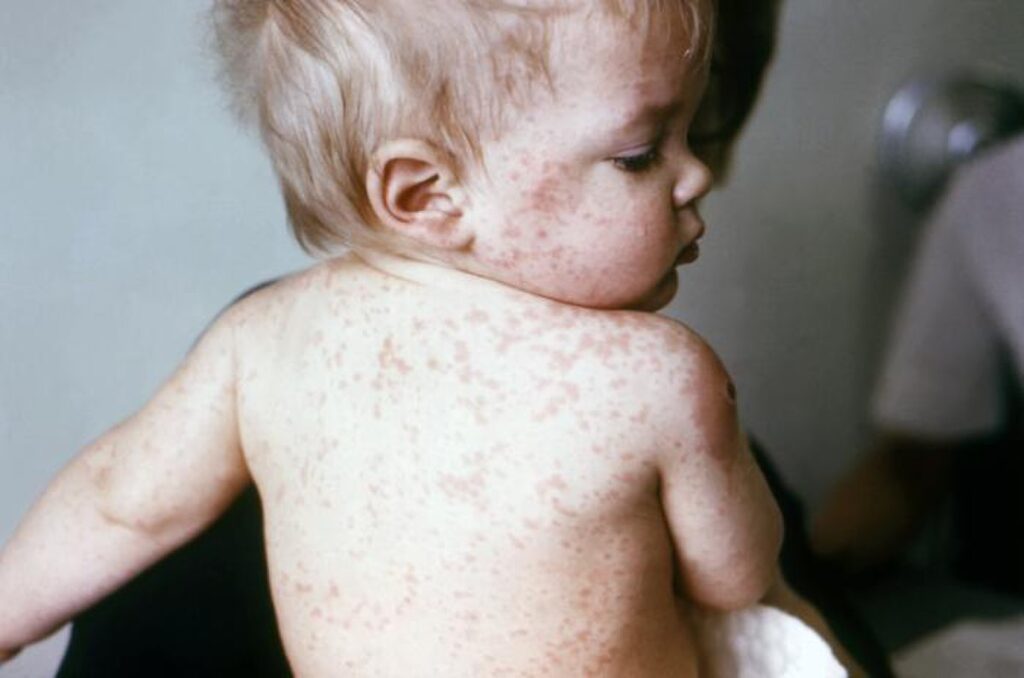Article Presented By Hometown-Motors, Inc…
(Columbus) – Ohio Department of Health (ODH) Director Bruce Vanderhoff, MD, MBA, has reported the state’s first measles case of 2024. The infected child is from Montgomery County.
The Ohio Department of Health is working with Public Health - Dayton & Montgomery County to identify and notify those who may have been exposed.
ODH is not aware of any additional cases, and the department will continue to collaborate with Dayton and other impacted health departments on the investigation.
Ohio had one measles case in 2023, and 90 in 2022, when an outbreak centered in central Ohio totaled 85 cases. Those cases were the first in the state since 2019.
Measles prevalence has been increasing recently internationally and there have been recent reported cases in the United States, as well.
Measles is extremely contagious and can spread to others through coughing and sneezing. If one person has measles, up to 90% of those who come into contact with that person and who are not immune will also become infected.
The measles vaccine (called MMR as it protects against measles, mumps and rubella) is highly protective. The Centers for Disease Control and Prevention recommends all children get two doses of MMR vaccine, starting with the first dose at 12 through 15 months of age, and the second dose at 4 through 6 years of age.
MMR vaccine can also be given to adults born after 1957 who are not vaccinated, or whose vaccination status is unknown.
“Measles can be a very serious illness for anyone,” Dr. Vanderhoff said. “The key to preventing measles is vaccination. If you are not vaccinated, we strongly encourage you to get the vaccine.”
The measles virus can live for up to two hours in air where an infected person coughed or sneezed. If other people breathe the contaminated air or touch an infected surface and then touch their eyes, noses, or mouths, they can become infected. People infected with measles can spread it to others from four days before, through four days after, a rash appears.
Measles symptoms include a rash, high fever, runny nose, cough, loss of appetite and red, watery eyes. The rash usually lasts 5-6 days and begins at the hairline, moves to the face and upper neck, and proceeds down the body. Diarrhea and ear infections are common complications of measles. More severe complications may also occur.
Complications from measles are more common among children younger than 5 years of age, adults older than 20 years of age, pregnant women, and people with compromised immune systems. As many as one out of every 20 children with measles gets pneumonia, the most common cause of death from measles in young children.



More Stories
Red Cross Seeks Donors May Trauma Awareness Month
Ohio A.G. Seeks Input On Signature Protections
Recommendation Made to Raise Postal Rates